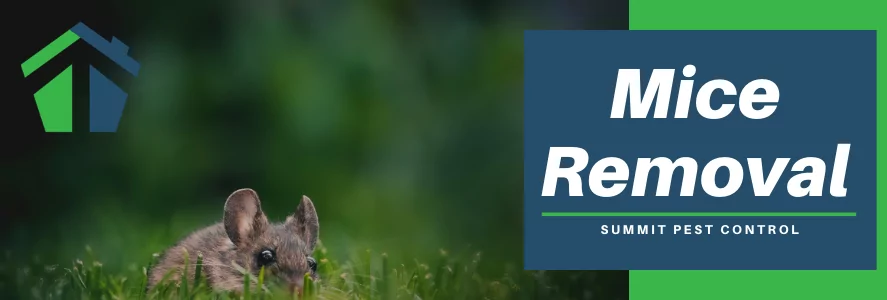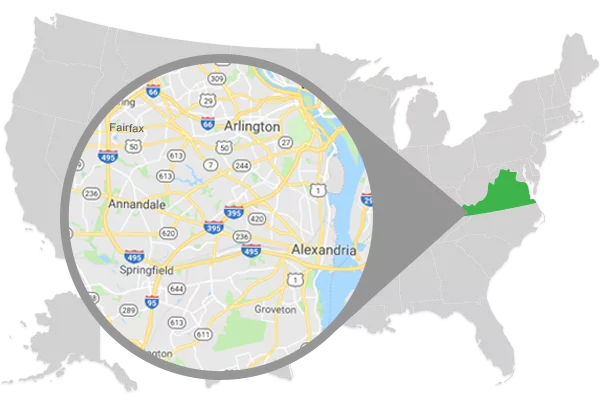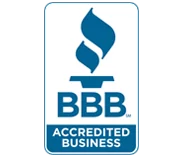Mice Removal in Fredericksburg, Fairfax, Alexandr
ia & Arlington, VA
Mice reproduce very quickly, so it’s important to get rid of them if you suspect you have them in your home. Traps, repellents, and hiring a Pest Control Company are your best bet for removing mice from your home.
How does Summit Pest Control Get Rid of Mice?
There are several different species of mice, but the most common in Northern Virginia are the house mouse and the deer mouse. House mice are found in more urbanized and suburban areas while deer mice are typically found in rural settings.
Mice are naturally curious creatures known for their interest in different foods and objects in their area that they will nibble on. The gestation period for mice is 19-21 days and they will produce between five and 10 litters a year. Female mice reach sexual maturity at six weeks old and are able to start reproducing then. Although mice have extremely poor vision, they make up for it with their keen sense of hearing and smelling.
What Kind of Diseases can You Get from Mice?
Removing mice from your home is an important step to keep your home and family healthy and safe. Mice can carry various diseases:
- Lyme Disease
- Salmonella
- Rat-Bite Fever
- Hantavirus
- Typhus
- Plague
Schedule a FREE
Estimate
Fields with (*) are required.
Fields with (*) are required.
How to Remove Mice from Walls?
The good news is, if there are mice in a wall, they are most likely able to come and go through small unseen gaps and holes. A conventional treatment will, in most cases, be effective without having to get invasive.
If on the other hand, the mice are trapped because they fell down a wall void, then the only way to extract them is to cut holes. Drywall is easy to repair and many companies can assist with that. Summit, in addition to rodent control and removal can also do all repairs including drywall repair.
Three Tips to Prevent Rodents
- Seal any possible entry points
- Remove any food and water sources
- Clear out clutter and debris
What is Rodent Control?
Rodent control is the professional practice of reducing, removing or eliminating a rodent population using a variety of techniques that includes the use of rodenticide, trapping, one-way exits, food and water elimination, sealing up access points, and the reducing or removal of harborage.
Frequently, for long term control, a maintenance program is advised on a monthly, bi-monthly or quarterly frequency. Mice are classified as a rodent and are one of the most commonly known rodents.
How do You Get Rid of Rodents?
Getting rid of rodents in your Virginia home or business depends on a number of factors. Things such as the number of rodents, the species of rodents, what attracts the rodents, environmental conditions around the home or business, food and water sources, condition of the building, presence of children, pets, wildlife etc. can affect what strategies are implemented.
At SES we believe a multi-faceted approach is best since we believe strongly in and practice integrated pest management and integrated pest control. This practice encourages the use of a three pronged approach to pest control using chemical and non-chemical procedures. Procedures such as reducing and removing harborage, sealing entry holes, removing conducive conditions and trapping or judicious and careful use of pesticides.
To be successful in the long term, these methods work best and are best for humans, animals and the environment. An example of IPC (Integrated Pest Control) is to trap mice with snap traps, seal holes in the building envelope, and remove food and water that might be accessible to rodents. Once this is put in place, then monitoring traps, bait stations, and inspections regularly will help gauge success as well as needed changes in the strategy.
How do You Get Rodents Out of Your House?
There are a few choices as to how this can and should be done. The quickest and most effective method is to apply rodenticide (rodent poison) to kill any rodents in and around the home. Traps can be used alone or in conjunction with a rodenticide application, however trapping alone is labor intensive and takes longer to wipe out a population of rodents in the long run.
What you should know about mice removal
The occupant of the home should understand a few things before launching out into a full blown poisoning program.
- There will ultimately be dead rodents in and around the home. A dead rodent in the building can result in odor and flies from a decomposing rat or mouse.
- It’s illegal to poison wildlife so squirrels, although rodents, are protected in all states from being poisoned.
- Rodent poison will kill all mammals, not just rodents, so pets need to be protected by making the rodenticide inaccessible to pets by placing it in tamper resistant bait stations.
- Once a program is complete, all rodenticide is to be removed from application sites and leftover rodenticide needs to be disposed of according to label instructions.
How Much does Pest Control Cost for Rodents?
Fees are variable depending on the severity of the infestation. Call Summit Pest Control for a free, no-obligation quote. We will send out a Pest Expert to perform an extensive inspection by which he will develop a customized plan that fits your needs. We then will begin the treatment if not the same day, within the next day or so.
Why Should I Address a Rodent Problem?
A couple of mice in a home can quickly turn into an infestation. Most people don’t even realize they have mice until things get really bad. The most obvious signs of a mouse problem are droppings.
Mice can cause various diseases and the problem should be addressed sooner than later, the longer it is prolonged the longer it will take to get rid of them.
Contact Summit Wildlife Removal for Mice Control in Fredericksburg, Fairfax, Alexandria & Arlington, VA.
Contact us online or give us a call at 703-884-2124 when you need our services. For dog or cat issues, contact your local municipal animal control office.













